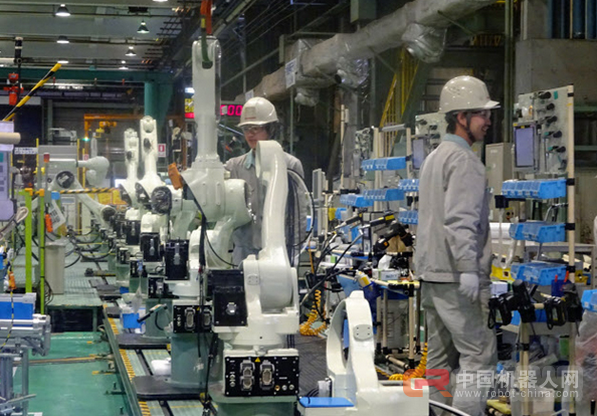
Kawasaki Heavy Industries manufactures general-purpose robots (Mingshi City, Hyogo Prefecture) for the Chinese market at the Akashi Plant Kawasaki Heavy Industries has started production of small and medium-sized general-purpose robots at its Suzhou plant in Jiangsu Province. Previously, such robots have been exported from Japan to China. For robots used to assemble motors, electronic equipment, and automotive-related mechanical parts, the company has newly established a production line with an annual capacity of 2,000 to 3,000 units. The overall capacity of the Suzhou plant will increase by 2 to 30%. Kawasaki Heavy Industries hopes to curb exchange rate risks by converting to local production, and to obtain demand that will continue to expand in the future. At the same time, it will also transfer and expand Tianjin's business and service bases. Yaskawa Electric plans to double the production capacity of multi-joint robots to about 1,000 units per month in China. In the mid-term business plan with the year 2018 as the final year, an additional factory in Jiangsu Province was proposed. The Changzhou factory will be added to produce large robots for welding and moving goods. Almost 50,000 square meters of construction land have been secured. With the rise in labor costs, companies that have moved their production bases from China to other parts of Asia are gradually increasing. At the same time, the Chinese government proposed the “Made in China 2025” plan to increase the production efficiency of enterprises and is promoting the transformation and upgrading of the industrial structure with low-cost weapons. The Chinese government proposed to transform itself into a production base with high quality and price competitiveness in “Made in China 2025”. We will position the new generation of IT, energy conservation, industrial robots, and aerospace as key industries and call for companies to introduce robots and share manufacturing information. The Chinese government has also proposed to shift from a "manufacturing power" to a "manufacturing a powerhouse", and by 2049 make comprehensive strength the target of the world's most powerful manufacturing nations. The Chinese government is currently collecting "pilot models" from enterprises to provide some support funds for target companies. For the policies that promote the improvement of production efficiency, local Chinese companies are also actively pushing forward. For example, Midea Group, a major Chinese home appliance manufacturer, acquired German KUKA, a world-class industrial robot company. In order to seize the opportunity for the birth of the Chinese version of “Industry 4.0,” Japanese companies have also started operations. In addition to machinery manufacturers, Fujitsu also announced cooperation with Shanghai Instrument. The two parties will jointly promote the "Intelligent Manufacturing Project" using the Internet of Things for factories. Of course, this is not all "good news" for Japanese companies. For example, China Fund has planned to acquire German semiconductor manufacturing equipment companies. Although this plan was eventually forced to abandon, it is enough to show that China has already targeted the technologies of developed countries. Naturally, Japanese companies may also become targets for Chinese companies to implement mergers and acquisitions.
Other Digital Photo Frame,Cold Rolled Steel Strip,Type K Thermocouple Alloy
INT Metal Products Factory , http://www.libometal.com
没有评论:
发表评论